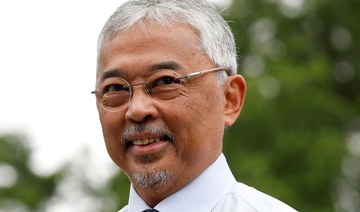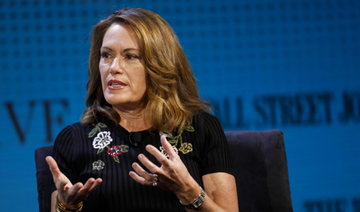KUALA LUMPUR: Hate speech has been dominating Malaysia’s corner of TikTok, experts said on Wednesday, as political uncertainty continued after a general election ended in a hung parliament.
After divisive polls on Saturday failed to produce a clear winner, Malaysians throughout the country have been glued to their screens for the latest updates on the formation of their next government, an issue still to be decided four days after 14.7 million Malaysians cast their ballots.
Nearly 6 million Malaysians were eligible to vote for the first time in the election, the first since a constitutional amendment lowered the voting age from 21 to 18.
The campaign period saw politicians taking to social media in efforts to woo youth votes, with video-sharing platform TikTok emerging as the most popular.
“Many political campaigns target these youth,” Faisal Aziz, president of the Malaysian Islamic Youth Movement (ABIM), told Arab News. “However, the videos lacked any constructive conversations and instead fan sentiments of hatred and divisiveness.”
As Malaysia’s election crisis drags on, TikTok has turned into a hotbed for hate speech and disinformation.
Malaysia ranked the sixth highest for TikTok's penetration rate globally, with most of its 4 million users aged under 30, according to 2022 research by Digital Business Lab.
In a statement on Wednesday, TikTok said it was on “high alert” and would “aggressively remove any violative content.”
Social media users in Malaysia have been reporting a slew of posts mentioning a deadly race riot in Kuala Lumpur on May 13, 1969, which left around 200 people dead days after opposition parties supported by the ethnic Chinese community made inroads in an election. Around 40 percent of Malaysia’s 32 million population are minorities.
The company, which is owned by China-based firm ByteDance, said it had removed videos with May 13-related content that violated its community guidelines, adding that the company had “zero tolerance” against any form of hate speech and violent extremism.
Dr. Ryan Chua, program director of human rights non-governmental organization Pusat Komas, told Arab News that narratives of racial and religious politics were “amplified” by social media, which had led to the results of the elections.
Opposition leader Anwar Ibrahim’s reformist, multi-ethnic alliance, Pakatan Harapan, had topped the race with 82 out of 222 parliamentary seats, while the Malay-centric Perikatan Nasional led by former Prime Minister Muhyiddin Yassin had unexpectedly won 73 seats. Both groups were short of the 112 seats needed for a simple majority to form a government.
“Race and religious rhetoric have created a split amongst the voters,” Chua said.
The social media narrative has also led to police setting up 24-hour checkpoints on roads throughout the country to ensure public safety and security.
“This is the first phenomena in Malaysia where such narratives are elevated even further through TikTok,” Hisham Muhaimi, project officer at the Initiative to Promote Tolerance and Prevent Violence, told Arab News.
“The authorities should do more than just asking users to prevent provocative content,” he said. “I believe the damage is done and this reflects the poor and ineffective content moderations by TikTok.”

























